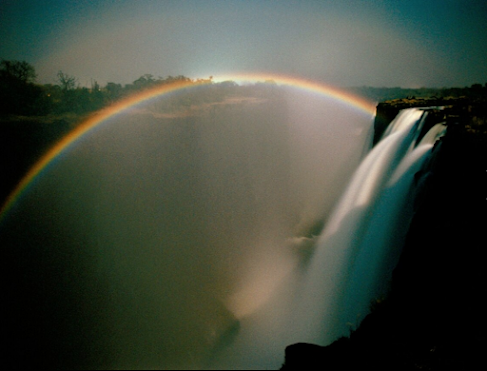#8 New Year, New...development projects?
 |
| Figure 1. “Down the Zambezi”, 1997. |
As we head into the New Year and this blog is reaching its end, it seems fitting to do what we all do on December 31st: reminisce and reflect.
Over the last seven posts I explored hydropolitics in Southern Africa, by discussing it in relation to a variety of topics. Spanning from water wars and transboundary basins to the management of water at dams and in urban sanitation systems, I did my best at conveying the complexities of water politics. Above all, I hope the range of my chosen topics shows that hydropolitics is not just about mega-schemes and wars, like often portrayed in the media, but also about collaboration and community-led projects. Nonetheless, I tried to draw a connection between all posts by linking each case study or topic back to its historical context and the broader concept of development. In doing so, I was able to understand how the legacies of power influence and continue to influence contemporary development projects. Yet, if I had the chance to write one more post, I would have dedicated it to the potential of groundwater, which has now been unintentionally excluded from my blog’s narrative.
Furthermore, the exploration of the Zambezi river basin allowed me to understand that despite the similarities between basin states, there are significant differences that should not be ignored in development projects; disregarding regional, national and international individuality often results in weak sustainable management schemes, like in the case of the Kariba dam. Here, the local river discharge and flood events were not researched in enough depth, ultimately causing the current threat of collapse. That being said, one way to develop efficient and context-specific projects is the involvement of local communities, which I briefly touched on through Windhoek’s sanitation problem. However, my study of Namibia’s capital also raised concerns about government negligence and using community-led governance as an ‘easy way-out’. This is definitely a hurdle that upcoming water management projects will have to face, but with the changing paradigms in water management to IWRM I believe there is hope for a more sustainable future.
Finally I’d like to leave you with this excerpt from Wendell Berry’s poem ‘Like the Water’, as it conveniently shows how it’s up to us, not the environment, to create a space in which clean water is accessible to all:
Though we drink till we burst,
we cannot have it all,
or want it all.
In its abundance
it survives our thirst.


Comments
Post a Comment